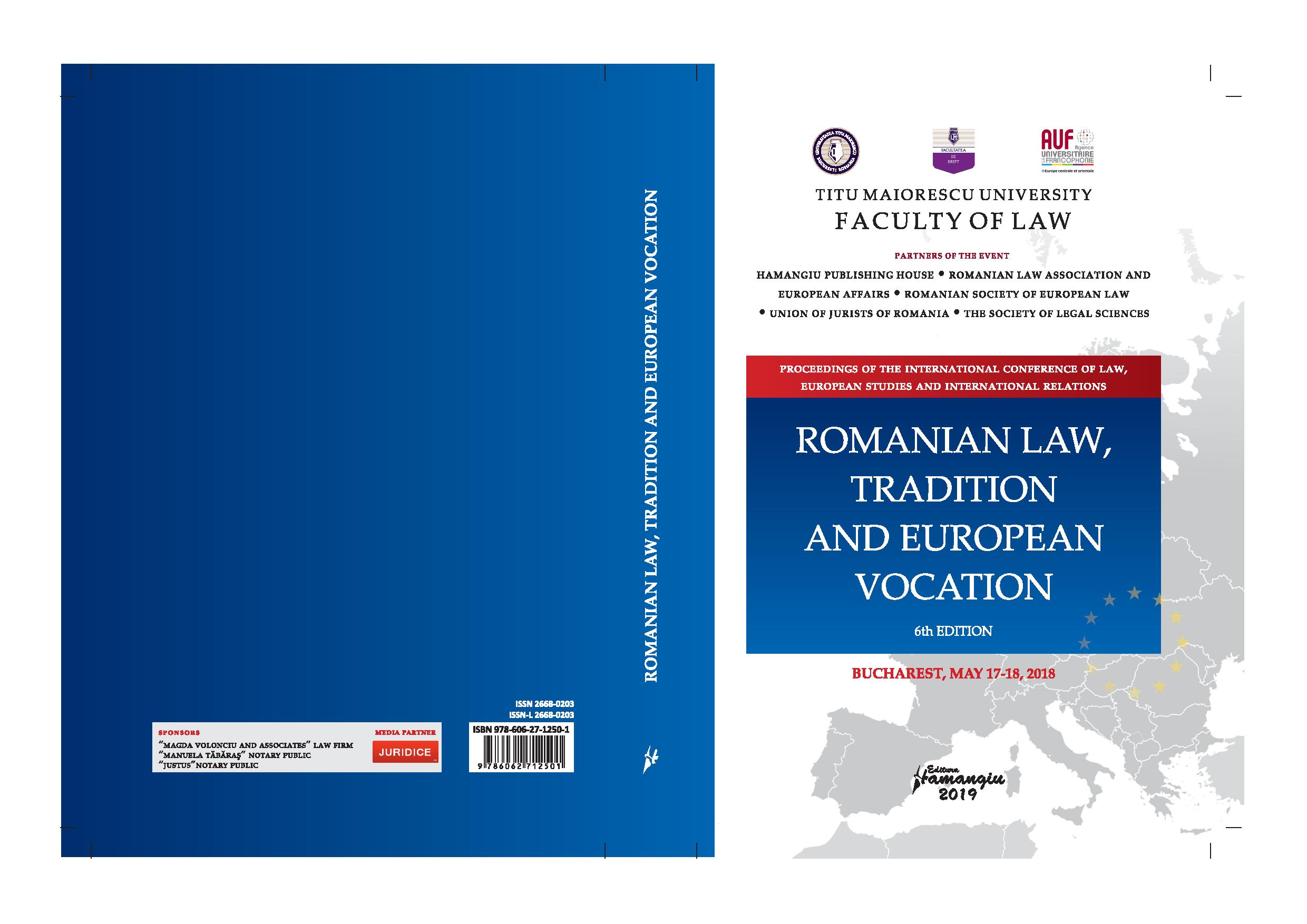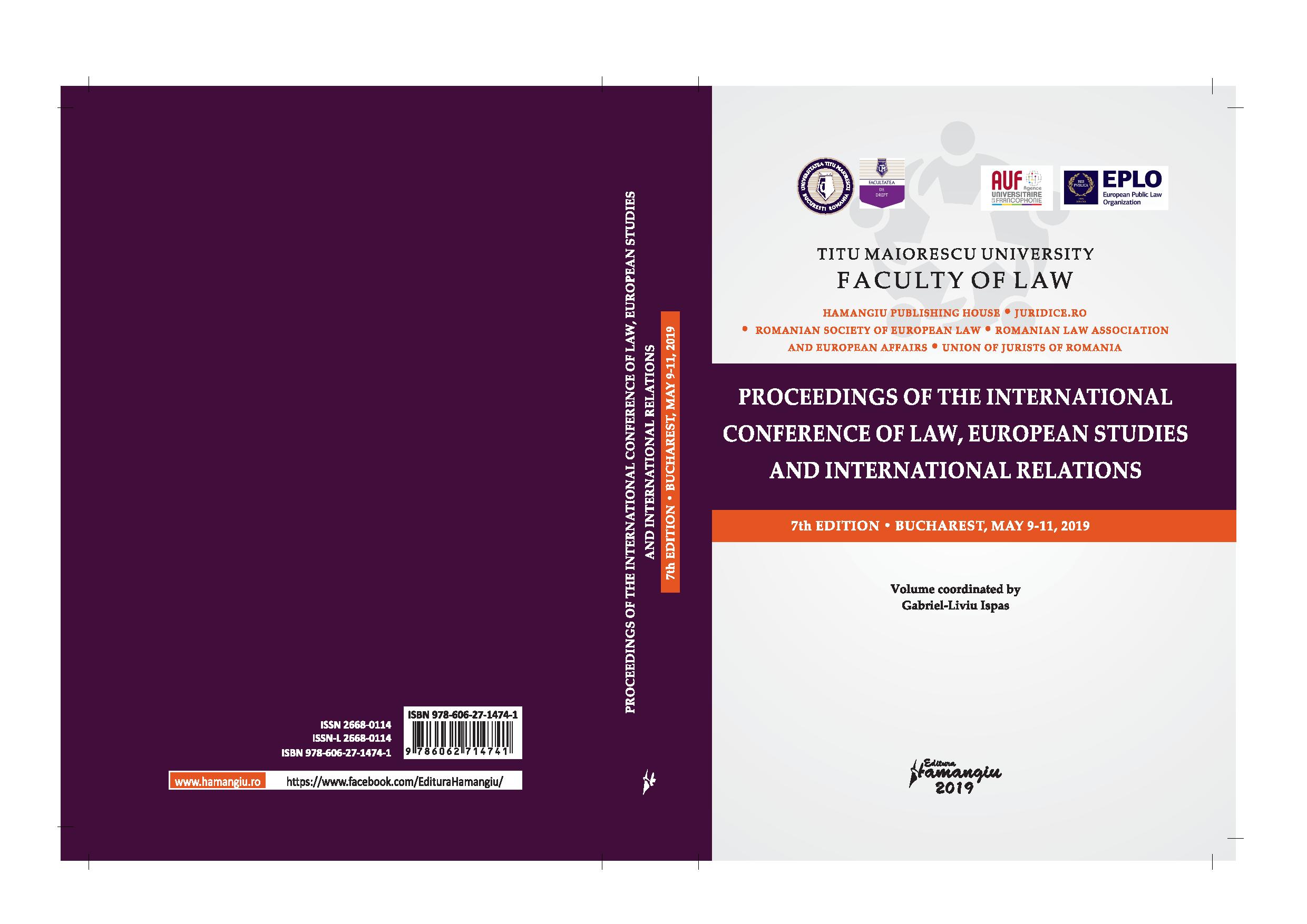
Principle of the Rule of Law in the Recent Design of the European Union. Challenges Regarding the National Sovereignty
The rule of law has become, in recent years, a symbol of the democratic States of the European Union. The symbol of the rule of law began to represent a paved road with complementary principles such as the fight against corruption to achieve economic and social prosperity. In the struggle of highlighting the consequences arising from the alleged violation of the rule of law, the legal conceptualization of this process appears to be topical. In light of recent developments at European Union level, we are wondering whether the concept of the rule of law must be rethought at national level.In this study we aim to analyze at the legitimacy and legality of the European Union's 'rule of law' vision and to observe whether the national constitutional regulation of the rule of law reflects in its contents and values of the European Union's understanding concerning this topic. We aim to find out whether the rule of law is the faithful reflection of the strict and severe application of the law, of the independent justice, of total transparency, of economic stability.
More...
